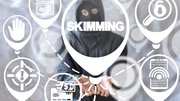News
ABA supports improvement to transaction reporting
May 17, 2006
WASHINGTON - The American Bankers Association asked Congress to improve cash-transaction reports, or CTRs, by exempting "seasoned business customers" from the 13 million reports filed annually. Financial companies and institutions must file currency-transaction reports for each cash transaction that's more than $10,000.
Testifying before the U.S. House Financial Services Subcommittee, ABA vice chairman Bradley E. Rock said the 35-year-old requirement actually may distract and impede crooks and terrorists rather than identify and stop them.
"The best way to improve the utility of cash transaction reporting is to eliminate the valueless reports being filed on legitimate transactions by law-abiding American businesspeople," Rock said.
Rock, who also is president and chief executive of New York's Bank of Smithtown, said his bank filed 2,766 CTRs last year, and most were transactions conducted by longtime customers. His bank's tellers spent more than 460 hours preparing CTR forms.
"Having watched this process for years, and being thoroughly familiar with the businesses that are subject to these filings, I can tell you with firm assurance that all of this time and paper did absolutely nothing to advance our collective efforts to thwart money laundering and terrorism," he said.
The "seasoned customer" exemption includes three elements. The customer must be an authorized business, maintain a deposit account for 12 months and cause the bank to file multiple CTRs.
"SARs (suspicious activity reports) provide precise account and related transaction information as well as narrative detail not available in CTRs," Rock said. "In addition, by using the 314(a) inquiry process, law enforcement will be able to locate transaction data and other relevant information on a broad range of accounts of suspects. This more targeted approach is working and producing tangible results today."
In 1994, Congress tried to address the growing CTR problem by enacting an exemption process, but the exceptions are for the most part unused.
 ChatGPT
ChatGPT Grok
Grok Perplexity
Perplexity Claude
Claude












